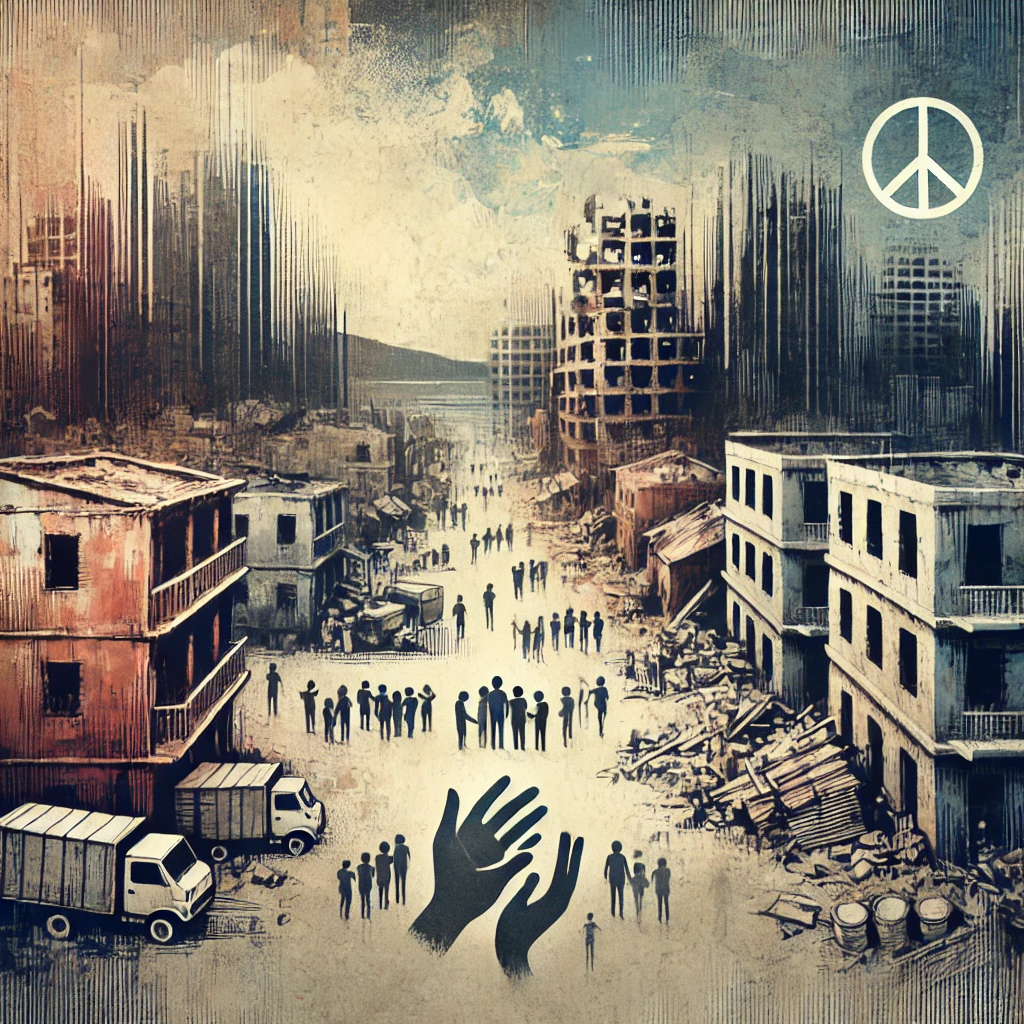Gang Violence in Haiti: The Crisis the World Is Ignoring
October 23, 2024 - Port-au-Prince, Haiti
Gang violence in Haiti has reached unprecedented levels, particularly in the capital, Port-au-Prince, where armed groups have gained control over large parts of the city. The escalating violence has created a humanitarian crisis, severely affecting the lives of residents who are caught in the crossfire. Despite the dire situation, the ongoing crisis in Haiti receives minimal international media attention compared to other global conflicts. It is time to shine a spotlight on this forgotten crisis.
The Reality on the Ground: Life in a City Under Siege
Port-au-Prince, once a bustling capital, is now a city under siege. Armed gangs have gained control of vast areas, and their presence has brought terror to residents. According to a recent United Nations report, as of September 2024, over 60% of the city is estimated to be under the control of various armed groups (United Nations, 2024). These gangs have established checkpoints, blockaded neighborhoods, and engaged in violent turf wars, leaving the local population trapped in a constant state of fear.

Kidnappings, extortion, and armed clashes have become the new normal for many. Residents are afraid to leave their homes, as venturing out can mean risking their lives. Schools are closed, businesses have been shuttered, and access to essential services is severely limited. The constant presence of gang members and the sound of gunfire have become a grim backdrop to daily life in Port-au-Prince.
"We are living in a war zone," said one resident, whose name has been withheld for safety reasons. "We have no freedom, no safety. Every day, we wonder if we will survive." This sentiment is echoed by many who have found themselves at the mercy of the armed groups that dominate their neighborhoods.
The Humanitarian Toll: A Crisis of Survival
The humanitarian impact of the escalating violence in Haiti cannot be overstated. The violence has displaced thousands of families, forcing them to leave their homes in search of safety. Many are now living in makeshift shelters, lacking access to basic necessities such as clean water, food, and healthcare.
The International Red Cross reported that more than 200,000 people have been displaced by the violence since the beginning of 2024 (International Red Cross, 2024). This displacement has led to a severe strain on already limited resources, with humanitarian organizations struggling to provide assistance in the face of increasing needs and restricted access to affected areas.
Healthcare facilities in Port-au-Prince are overwhelmed. Doctors and nurses work under constant threat, and many clinics have been forced to close due to the danger posed by armed groups. The lack of healthcare services has left many without the medical attention they desperately need, further exacerbating the crisis.
The International Silence: Why Is This Crisis Being Ignored?
Despite the severity of the situation, the crisis in Haiti has received little international media coverage. While conflicts in other parts of the world dominate headlines and draw international support, the suffering of the Haitian people has largely been ignored. The reasons for this neglect are complex but can be partly attributed to the lack of geopolitical interest in Haiti and the oversaturation of global news with other crises.
Haiti's history of political instability and natural disasters has often painted the country as a place of perpetual crisis, leading to what some experts call "crisis fatigue." The international community's lack of sustained engagement has left the Haitian people to fend for themselves, with little hope of meaningful intervention.
The lack of media attention has also contributed to the absence of international aid. Without widespread coverage, there is little pressure on governments and international organizations to take action. As a result, the people of Haiti continue to suffer in silence, their plight overshadowed by more high-profile global conflicts.
What Needs to Be Done: A Call for International Action
Addressing the escalating gang violence in Haiti requires immediate and coordinated action. The United Nations and other international bodies must prioritize the situation in Haiti, providing the necessary resources to help stabilize the country and protect its citizens. This includes supporting local law enforcement, improving security in affected areas, and providing humanitarian assistance to those in need.
The international community must also address the root causes of the crisis, including poverty, political instability, and lack of economic opportunity. Sustainable solutions are needed to break the cycle of violence and provide hope for the future. This means investing in education, healthcare, and economic development to create opportunities for the Haitian people and reduce the influence of armed groups.
Media outlets around the world have a responsibility to report on the crisis in Haiti. By bringing attention to the ongoing violence and its devastating impact, they can help raise awareness and pressure governments to take action. The people of Haiti deserve to have their voices heard, and the world must not turn a blind eye to their suffering.
Conclusion: Haiti's Cry for Help
The escalating gang violence in Haiti is a humanitarian crisis that demands immediate attention. The residents of Port-au-Prince are living in fear, their lives disrupted by armed groups that have taken control of their city. The lack of international media coverage and support has only deepened their suffering, leaving them with little hope for relief.
It is time for the world to wake up to the crisis in Haiti. We cannot afford to ignore the plight of an entire population living under siege. By raising awareness, demanding action from the international community, and addressing the root causes of the violence, we can help bring peace and stability to Haiti. The people of Haiti deserve a future free from fear—a future where they can live in safety and dignity.
For further information on the gang violence in Haiti and the humanitarian impact, you can visit the following sources:
